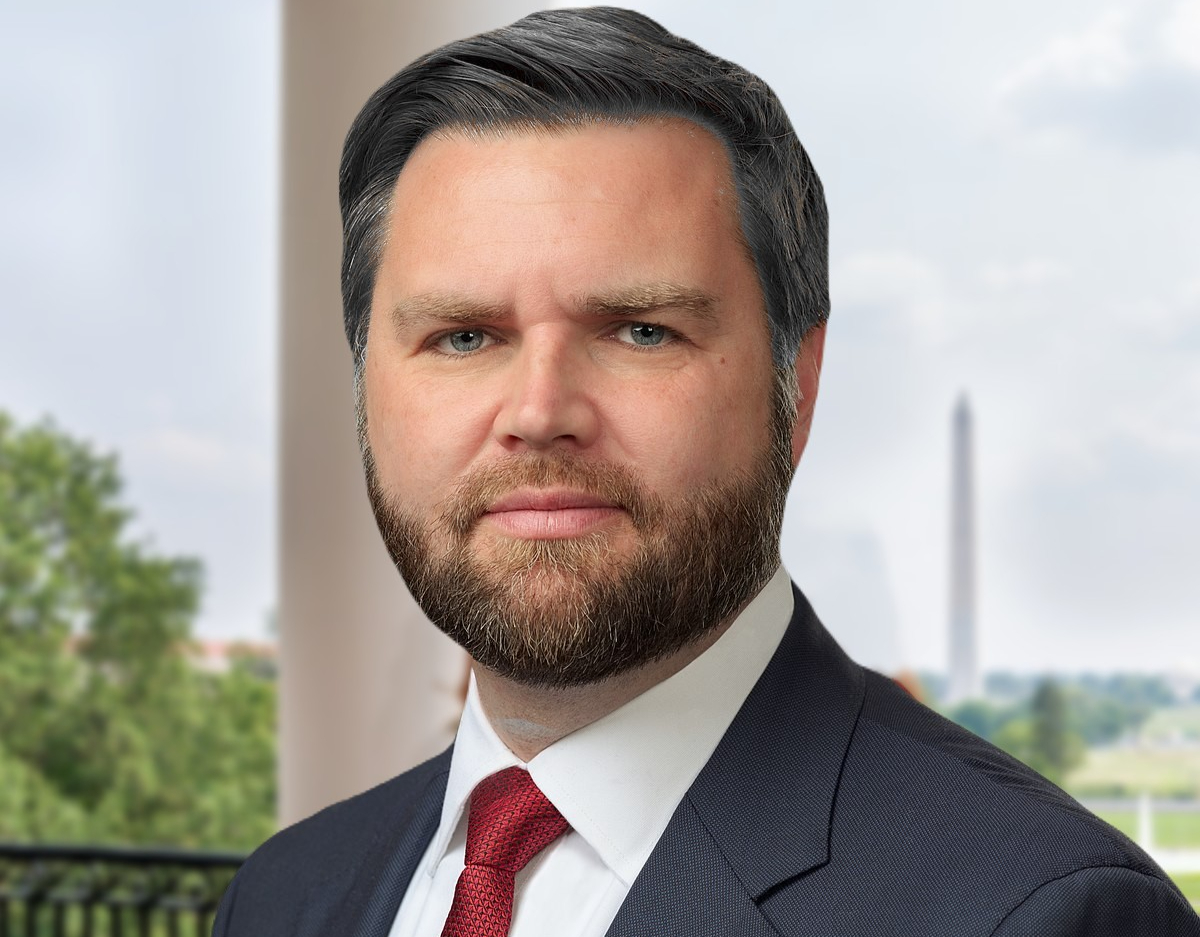Executive
JD Vance, Son of Appalachia, Accepts VP Nomination and MAGA Mantle
Sen. J. D. Vance (R-Ohio) accepted the Vice-Presidential nomination yesterday, and showed himself a man of the people, not the tycoons.

MILWAUKEE — Sen. J.D. Vance formally accepted the vice-presidential nomination on the third day of the Republican National Convention, while unofficially accepting the role of MAGA movement heir-apparent, signaling during his acceptance speech that the old GOP is a memory.
Vance offers MAGA-like criticism of Democrats – and the Republican old guard
By way of introduction, Vance took Democrats to task for the foreign interventionism, deindustrialization, and globalism that he insists hollowed out the heart of the country.
“When I was in the fourth grade, a career politician by the name of Joe Biden supported NAFTA, a bad trade deal that sent countless good American manufacturing jobs to Mexico,” he said. By his sophomore year of high school, he continued, Biden backed China joining the World Trade Organization, “a sweetheart trade deal” that offshored even more American industry. “And when I was a senior in high school, Joe Biden supported the disastrous invasion of Iraq.”
The speech was his bestselling memoir, Hillbilly Elegy, in miniature, a story of betrayal by “America’s ruling class,” who decimated small towns like his as “jobs were sent overseas, and children were sent to war.” Not mentioned by the Appalachian son: how those developments came from bipartisan hands. Republicans in Congress and the White House supported – and sometimes authored – those global trade deals, and led the U.S. into foreign wars, too.
“From Iraq to Afghanistan, from the financial crisis to the Great Recession, from open borders to stagnating wages, the people who govern this country have failed and failed again,” Vance bellowed.
It almost didn’t happen – and Vance acknowledged that
“Silly season,” Scott Lincicome of the libertarian CATO Institute said of the remarks. It may instead be the dawn of the New Right, a professionalization and intellectualization of former President Donald Trump’s gut instincts led now by his newest apprentice, a disciplined Marine trained at Yale Law School. If Republicans are successful in November, Vance, who will turn 40 in a couple of weeks, would be well positioned to mount future White House bids of his own and solidify the course correction of the GOP and the nation into the future.
It almost did not happen, as Vance noted. He began his speech by reminding the party faithful that the evening could have been a memorial rather than a celebration but for a “quarter of an inch.” The former president moved his head ever so slightly last Saturday and dodged the bullet meant to kill him. “When Donald J. Trump rose to his feet in that Pennsylvania field,” Vance bellowed, “all of America stood up with him!”
Trump looked down from his box, his ear still bandaged from the bullet, and beamed at Ohio’s junior senator, whom he describes in private as having “beautiful blue eyes.” Throughout the evening, the crowd chanted the name of the vice presidential nominee, an audible signal that Vance was on his way to achieving what Trump wants most: unity. Outside the arena, however, Vance is seen in certain corners of the GOP as a challenge to the established order.
The Republican establishment might already be plotting to hem him in
Vance may have the wrong policy views, but surround him with the right personnel, establishment Republicans told themselves this week, and his more extreme ideas could be neutered, particularly on foreign policy. Sen. John Thune of South Dakota, now vying to be the next Republican Senate leader, believes that “populating” the next GOP administration properly could strike the right balance.
It is important to start putting a plan together, Thune told Jonathan Martin of Politico, in a story published the morning Vance spoke, “to make sure that all those voices within the Republican heritage when it comes to national security policy are heard.”
Mike Pompeo could not be farther from Vance on most issues. Trump’s Secretary of State, after a stint as CIA director, is a hawk’s hawk, embodying the GOP’s more muscular, interventionist views. Yet he professes not to be worried. “If you were a Ukrainian mother,” Pompeo told RealClearPolitics before the speech, “you would prefer Trump and Vance to Biden and Harris all day long.”
That view implies that either Vance will have a limited say on foreign policy, or that will evolve in a hurry. “I’ve got to be honest with you,” Vance told Trump adviser Steve Bannon while a Senate candidate. “I don’t really care what happens to Ukraine one way or another.” Notably, on Wednesday night, he said nothing of the war raging on Russia’s eastern border.
Seeking office and holding it are not the same
But running for office is different than governing, and Pompeo insisted that with a bit of careful study, leaders will eventually “get to a good place.”
“In the end President Trump will be the one making these decisions,” Pompeo said of policy before pointing to personnel. “And I think he will build a good team around him, and I think we will continue to do good things for America, Europe, and Ukraine.”
Back inside the convention hall, Vance called on the GOP to unite around an identity as a party unafraid of debate, one “united in our love for America, and committed to free speech and the open exchange of ideas.” But the delegates here seem less concerned with internecine ideological battles and more interested in the biography of the young VP nominee who has lived the American dream in a hurry.
He will be dispatched to the upper Midwest once the convention ends, attempting to win working-class votes in Michigan, Wisconsin, and Pennsylvania, states Trump narrowly carried in 2016 but lost in 2020. It is a region full of Rust Belt towns like the one Vance calls home – Middletown, Ohio.
A blue-color background
Central to the appeal, the Trump campaign hopes, will be Vance’s own blue-collar upbringing, not just his intellectual arguments to blue-collar voters. He appealed to the base that put Trump in the White House by identifying as one of them. Their struggles are his struggles, he said. Their neighborhoods, unmoored by industrialization, are like his town. Their heartache is similar to his own. A powerful illustration was sitting in the president’s box.
Vance charmed the crowd with stories about his “Mamaw,” his grandmother and “guardian angel” who raised him, and how they found 19 loaded handguns in her residence after her passing, and how she raised him herself while his single mother, Beverly, was in the throes of the kind of addiction tragically so common in Middle America. And then, the vice-presidential nominee looked up to praise his mother for never giving up.
“And I am proud to say that tonight my mom is here, 10 years clean and sober,” he said as she beamed. The crowd cheered and started chanting, “J.D.’s Mom.” She stood to acknowledge them, fighting tears, and could be seen telling Speaker Mike Johnson, “That’s my boy, that’s my boy.”
Vance is where the people are
The warmth was evident in the arena, even as Oren Cass, a friend of Vance since before politics and the founder of American Compass, sees a “knock-down drag out fight with the old guard” on the horizon, judging from “how crestfallen and alarmed a lot of the legacy institutions are.” The day before, the Wall Street Journal editorial page, a safe space for more business-friendly and traditional Republicans, argued that Vance represented a risk “to growth and prosperity.”
Cass doesn’t have much patience for that kind of analysis, arguing that Vance represents a return to centrism defined not by the traditional left-right construct of the conservative American Enterprise Institute and the liberal Brookings Institute but “in terms of where most actual Americans are.”
“The Republican Party has not attempted to do that since Reagan,” he told RCP before the speech. The fundamental question though, Cass argued, was “compared to what?” And Vance, compared to former Vice President Mike Pence, “reflects the transformation that has occurred in the party.”
When asked about Trump’s former vice president withholding his endorsement this year, Vance told RCP after the Atlanta debate that he believed the Republican nominee should wear the “hatred” of skeptics as “a badge of honor” before speculating that “if Donald Trump wanted to start a nuclear war with Russia, I guarantee Mike Pence would be down here throwing his weight behind him.”
The latest convert
But Trump has J.D. Vance instead. And the new No. 2 came to Milwaukee, not just as the vice-presidential nominee, but as the most prominent Trump convert. Before entering politics, he once described Trumpism as “cultural heroin,” saying ahead of the 2016 election that the rhetoric of the New York billionaire was “reprehensible.” Although Vance’s conversion came a while ago and is well documented, the criticism still lingers as a potential liability. Talking points from the Republican National Committee leaked to RCP advise surrogates, “If pressed on past comments,” to personalize the metamorphosis.
“If President Trump can change Senator Vance’s mind, President Trump can change the minds of millions of Americans who have been lied to by Democrats and their media enablers, and Senator Vance will be able to reach undecided voters on a personal level,” reads one prepared answer.
Those disagreements were all put in a memory hole here Wednesday night. Appalachia’s new favorite son vowed on stage to Trump that he would “never take for granted the trust you have put in me.” Putting into action “the extraordinary vision” the candidate has for the country, he continued, will be “an honor.”
Vance pledged “to every American” that he would give “everything I have to serve you,” and vowed to “the people of Middletown, Ohio, and all the forgotten communities in Michigan, Wisconsin, Ohio, Pennsylvania, and every corner of our nation, I promise you this: I will never forget where I came from.”
What did Biden say?
The Biden campaign, now on the back foot after the president’s poor showing at the June 27 Atlanta debate, painted the GOP VP nominee as an out-of-touch elite. “Tonight, J.D. Vance, the poster boy for Project 2025, took center stage,” said Biden campaign spokesman Michael Tyler. “Backed by Silicon Valley and the billionaires who bought his vice-presidential selection, Vance is Project 2025 in human form – an agenda that puts extremism and the ultra-wealthy over our democracy.”
Vance vowed to do the very opposite. Pointing again to his rustbelt home, he said, “Many of the people that I grew up with can’t afford to pay more for groceries, more for gas, more for rent, and that’s exactly what Joe Biden’s economy has given them.”
“President Trump’s vision is simple. We won’t cater to Wall Street, we’ll commit to the working man,” he said by way of contrast as he prepared to carry that vision into the future in the next administration. And possibly, beyond.
This article was originally published by RealClearPolitics and made available via RealClearWire.
Philip Wegmann is White House Correspondent for Real Clear Politics. He previously wrote for The Washington Examiner and has done investigative reporting on congressional corruption and institutional malfeasance.
-

 Accountability3 days ago
Accountability3 days agoWaste of the Day: Principal Bought Lobster with School Funds
-

 Constitution2 days ago
Constitution2 days agoTrump, Canada, and the Constitutional Problem Beneath the Bridge
-

 Executive1 day ago
Executive1 day agoHow Relaxed COVID-Era Rules Fueled Minnesota’s Biggest Scam
-

 Civilization4 hours ago
Civilization4 hours agoWhy Europe Shouldn’t Be Upset at Trump’s Venezuelan Actions
-

 Civilization1 day ago
Civilization1 day agoThe End of Purple States and Competitive Districts
-

 Civilization5 days ago
Civilization5 days agoThe devil is in the details
-

 Executive4 days ago
Executive4 days agoTwo New Books Bash Covid Failures
-

 Executive16 hours ago
Executive16 hours agoWaste of the Day: Can You Hear Me Now?








